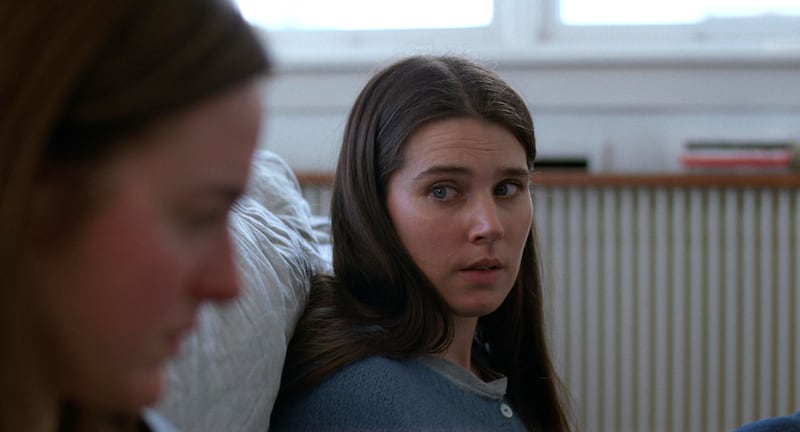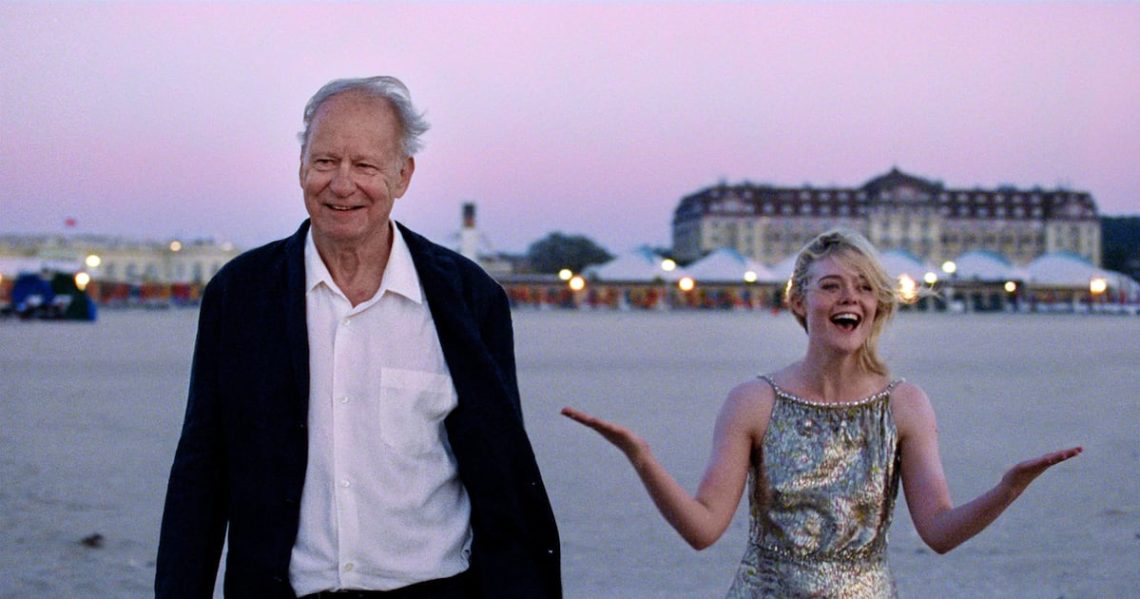Art is both reality and fantasy, liberating and constricting, and an escape from, and confrontation of, oneself in Sentimental Value, the story of a family whose ruptures run deep and are exacerbated by attempts to cinematically address them.
Acclaimed Norwegian filmmaker Joachim Trier’s follow-up to 2021’s The Worst Person in the World reunites him with Renate Reinsve, whose commanding performance as a stage actress drowning in sorrow and anger is matched by the titanic turn of Stellan Skarsgård as an absentee father convinced he can mend fences through moviemaking.
A story about home, inheritance, and fiction’s ability to reveal truths capable of bringing alienated individuals together, it’s a tumultuous, moving triumph which—on the heels of screening at the Cannes Film Festival (where it won the Grand Prix prize) and Toronto International Film Festival—is destined for year-end accolades.
With mere minutes to go before she’s expected on stage, Nora (Reinsve) does everything in her power to abandon ship, from holing up in her dressing room to fleeing the building to tearing off her costume. Only after being slapped by her colleague Jakob (long-time regular Anders Danielsen Lie), whom it’s later revealed is her married lover, does Nora get on with the show.

Nonetheless, if this disaster is temporarily averted, another quickly materializes thanks to the arrival of her father Gustav (Skarsgård) during a memorial for her mother at the house where she, and numerous prior generations of her clan, grew up. Given that Gustav is a celebrated film director who abandoned Nora and her sister Agnes (Inga Ibsdotter Lilleaas) in the wake of his divorce from their therapist mother, he’s hardly a sight for sore eyes. That he tries to act as if everything is fine between them doesn’t help matters, nor does his offer to Nora: the starring role in his first feature in 15 years, which he’s written specifically for her.
Nora categorically rejects her father’s overture, and at a French film festival retrospective of his work, providence shines down upon him when famous American star Rachel Kemp (Elle Fanning) is so moved by one of his classics that she invites him to dinner.
Over the course of their ensuing night together on the beach, they strike up a rapport, she taken by his uncompromising artistry and he by her desire for substance and seriousness. Their subsequent partnership is a win-win, except that from the get-go, Rachel searches for answers to her character—who’s partly based on Gustav’s mother, a WWII resistance fighter who was tortured by the Nazis and committed suicide in their house when he was little—that the aging auteur isn’t willing to provide.
Simultaneously, an adrift Nora seeks solace in various places, be it the arms of Jakob or the affections of her young nephew Erik (Øyvind Hesjedal Loven), who tells her that, when he grows up, he wants to marry her.

Co-written by Eskil Vogt, Trier’s drama pinpoints tensions in every direction. Nora and Agnes—the latter a historian with a husband and son—are at once intensely close and yet separated by temperaments, careers, lifestyles, and perspectives on their dad. Gustav is convinced that his newest screenplay is a masterpiece, but whether he’s meeting with his former cinematographer Peter (Lars Väringer) or doing promotional interviews for his forthcoming film, he worries that perhaps his time has passed.
Even Rachel isn’t immune from fear and self-doubt, both of which mount as she dives deeper into her part and comes to realize that there’s a reason Gustav wanted his eldest daughter for it. Wracked by bitterness, guilt, shame, fury, and insecurities, Sentimental Value’s characters struggle to assuage the torment that’s tearing them apart.
Narrated flashback montages flesh out the roots of Nora and Agnes’ (ancestral) pain, while Trier’s habit of transitioning between scenes with cuts to black—pauses that feel like the film is sighing before proceeding onward—amplify the material’s heavy-hearted anguish.
Sentimental Value, however, is also routinely funny, as when Gustav proves perplexed about the suggestion that his Netflix-funded project might not be shown in theaters (“Where else?”). Such levity allows it to breathe, alleviating its moroseness and expanding its portrait of its protagonists, who become more complex and thorny as their story wends its way through major and minor clashes, disappointments and surprises: Rachel’s stabs at affecting a Norwegian accent; Nora learning that Jakob is planning on leaving his wife; and Agnes researching her grandmother’s secret ordeal as a prisoner of the Third Reich.

Via two scenes that reveal themselves to be staged routines, Sentimental Value self-consciously underlines the bond between the real and the unreal, and it often pokes good-natured fun at the movie industry. Even so, it’s a true believer when it comes to film’s capacity to illuminate and inspire—at least when it’s grappling with the difficult stuff of everyday life.
Nora says that what she loves most about her chosen profession is building a made-up character whom she can fully inhabit, only to have Agnes remark that this means she wants to be someone else. As she learns, though, there’s no evading or denying the self and all that comes with it, including the intricate hang-ups born from familial relations. With a sensitivity that’s in tune with Trier’s tender, silky camerawork, Reinsve expresses Nora’s despair as a complicated jumble of rage, hurt and uncertainty, and her beautifully bruised performance is all the more remarkable for its understatement.

Speaking of subtlety, Skarsgård is devastatingly affecting as Gustav, whose selfishness and arrogance—typified by his impulse to hit on any young woman in his vicinity—coexist with his gentleness, remorse, and hardheaded but rousing conviction that cinema can bridge seemingly insurmountable divides.
Trying to convince Agnes to let Erik participate in his final big-screen venture (an opportunity that scares Agnes, considering her own traumatic experience as her dad’s pint-sized leading lady), and generously collaborating with Rachel on a role that doesn’t appear to fit her, Skarsgård is witty and wicked, warm and cold, and altogether riveting as a man eager to end things on a harmonious and healing note.
Sentimental Value understands that art requires (sometimes painful) sacrifices, as does family, and finding a balance between the two is a challenge that, when properly met, can enlighten and restore. With his virtuosic latest, Trier demonstrates a masterful gift for weaving together the light and the dark, the tragic and the euphoric. In doing so, he crafts a film about which one can feel readily sentimental.
The post The Year’s Most Moving Drama Should Nab a Major Acting Oscar appeared first on The Daily Beast.




